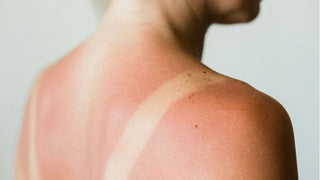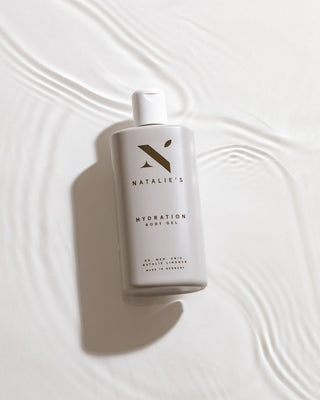Sunscreen isn't just a precaution; it's a vital shield against the onslaught of harmful UV rays. Imagine this: every minute under the sun exposes your skin to a staggering 5% increase in premature aging risks and a 1% higher probability of skin cancer. The allure of a golden tan fades against the stark reality—the sun's caress can wreak havoc on your skin's health. But hold on, here's the panacea: sunscreen. It's not just a lotion; it's your armor against the sun's relentless assault.
In this blog, we'll explore the benefits of sunscreen, the different types of sunscreen available, and how to use it effectively.
Table of Contents
1. Benefits of sunscreen
The primary benefit of sunscreen is protection against the sun's harmful UV rays. There are two types of UV rays that can damage the skin: UVA and UVB. UVA rays can penetrate deeper into the skin and cause premature aging, while UVB rays can cause sunburn and other skin damage. Both types of rays can increase the risk of skin cancer.
1.1. What does SPF stand for?
SPF stands for "Sun Protection Factor." It is a measure of how effective a sunscreen is at protecting your skin from the sun's harmful ultraviolet (UV) rays, particularly UVB rays. The SPF number indicates the level of protection the sunscreen provides. For example, SPF 30 sunscreen filters out about 97% of UVB rays, while SPF 50 sunscreen filters out about 98% of UVB rays when applied correctly.
It's essential to use sunscreen with an appropriate SPF level to safeguard your skin from sunburn and long-term sun damage. Experts recommend wearing a sunscreen with an SPF of at least 30, and it's best to reapply every two hours or after swimming or sweating.
1.2. What happens when I don't wear sunscreen?
If you don't wear sunscreen and expose your skin to the sun, several things can happen:
-
Sunburn: The most immediate consequence of not wearing sunscreen is sunburn. Sunburn occurs when your skin is damaged by the sun's ultraviolet (UV) radiation. It can cause redness, pain, and peeling, and it increases your risk of skin cancer.
-
Skin Damage: Prolonged sun exposure without sunscreen can lead to long-term skin damage, such as premature aging. UV radiation can break down the collagen and elastin fibers in your skin, leading to wrinkles, fine lines, and sagging.
-
Skin Cancer: Overexposure to UV radiation is a leading cause of skin cancer. Without sunscreen, your risk of developing skin cancer, including melanoma, the most dangerous type of skin cancer, significantly increases.
-
Hyperpigmentation: Sun exposure can lead to the development of dark spots, freckles, and uneven skin tone, a condition known as hyperpigmentation.
-
Weakened Immune System: Excessive sun exposure can weaken your skin's immune response, making it more vulnerable to infections and other skin conditions.
-
Pain and Discomfort: Besides the long-term effects, not wearing sunscreen can result in immediate discomfort, including redness, itchiness, and pain.
2. Types of sunscreen
There are two main types of sunscreen: chemical and physical. Chemical sunscreens work by absorbing UV rays, while physical sunscreens work by reflecting them.
Chemical sunscreens are typically lightweight and easy to apply, making them a popular choice for everyday wear. They contain chemicals such as oxybenzone, avobenzone, and octinoxate, which absorb UV rays and convert them into heat, which is then released from the skin. Chemical sunscreens can offer broad-spectrum protection against both UVA and UVB rays.
Physical sunscreens, on the other hand, work by creating a physical barrier on the skin that reflects UV rays. They contain ingredients such as zinc oxide and titanium dioxide, which are natural minerals that sit on the skin's surface. Physical sunscreens are a good choice for those with sensitive skin, as they are less likely to cause irritation or allergic reactions.
3. How to use sunscreen
To get the most out of your sunscreen, it's important to use it correctly. Here are some tips for using sunscreen effectively:
- Choose the right SPF: Look for a sunscreen with an SPF of at least 30, and higher if you plan on spending extended periods of time in the sun.
- Apply enough: It's important to apply enough sunscreen to get full coverage. Use about one ounce (a shot glass full) for your whole body. Be sure to apply to all exposed areas, including the face, neck, ears, and hands.
- Reapply regularly: Sunscreen can wear off over time, especially if you're swimming or sweating. Reapply every two hours, or more often if you're in the water.
- Use it every day: UV rays can cause damage even on cloudy or overcast days, so it's important to wear sunscreen every day, even in the winter.
- Choose the right type: If you have sensitive skin, a physical sunscreen may be a better choice. If you prefer a lightweight, easy-to-apply formula, a chemical sunscreen may be a better fit.
In conclusion, sunscreen is an essential part of protecting your skin from the sun's harmful UV rays. By choosing the right type of sunscreen and using it correctly, you can help prevent sun damage, premature aging, and even skin cancer. So next time you head out into the sun, don't forget to slather on some sunscreen and enjoy the outdoors safely.
However, if you do get a sunburn or want to hydrate your skin after a day in the sun, we recommend our hydration body gel, which is excellent at calming down the redness, swelling and pain!


